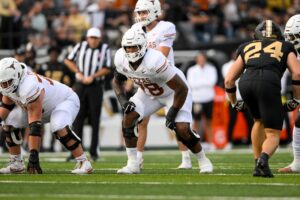Numbers can be funny things. Numbers and mathematics are languages just like any other. In English, though, sometimes the tone or the turn of phrase matters. Some things are colloquial while other instances only within a single family unit. That said, here is what the numbers reveal when researching the Green Bay Packers: the pass defense is injured and flailing, and only the strength of the rush defense can keep the Packers afloat. Although the statistics are what they are, the narrative is technically inaccurate.
Forget What You Know About the Green Bay Packers Run Defense
NFL Defensive Rankings
Take human assumptions, for example. When beginning conversations, people assume that each of the speakers share the same understanding of the same language. Still, sometimes an interaction among a Midwestern American, a Yorkshire Englishman and a South African could be mired in confusion. Likewise, assumptions are made about NFL defenses based on everyday standards and numerical data.
Let’s start with the Packers’ rankings. In terms of yards per game, the Packers are the fourth best rush defense giving up just 85.3 yards per game, and this same defense is the 16th ranked pass defense. Those are fine numbers. These numbers make sense to us too. The Packers lost Sam Shields to injured reserve and then lost Damarious Randall and Quinten Rollins for long periods to injuries. The Packers have been rolling out LaDarius Gunter and Demetri Goodson against NFL offenses. Meanwhile, Jake Ryan and Blake Martinez had been making plenty of tackles. Ryan and Martinez are the top two tacklers on the team. If things are going right, you want linebackers to lead your team in tackles rather than safeties. Generally speaking, the front seven have been healthy (other than Clay Matthews III and his constant hamstring issue).
Back to Reality
You take the assumption that these first numbers mean something and you then assume other things. For example, you would assume running offenses would have trouble against the Packers and passing teams would beat up the Packers. What if I told you the opposite is true?
Over half way through this season, the Packers have played four teams that are currently top 15 in the league in passing offense (Jacksonville Jaguars – 13, New York Giants – 9, Atlanta Falcons – 2). The Packers are 2-2 in these games and actually sport a +4 point differential in these four games. The worst loss against these teams was the six point loss to the Indianapolis Colts. Take into account the seven point deficit from the opening kickoff and these are all close games that the Packers could have won. Shoot, the Packers are a two minute drill away from beating two top ten passing offenses this year (the only two they have faced), and the one that beat them also had a top 15 rushing offense.
The Packers have played three games against teams with rush offenses in the top 15 (Dallas Cowboys – 1, Tennessee Titans – 3, Atlanta – 15). The Packers lost all three of these games. In fact, the Packers have only been blown out twice and those games were both top three rushing offenses. When playing defenses in the bottom half of the league in rushing, the Packers are 4-2.
Here is the truth: the Packers are built to beat passing teams. Rushing offenses are the ones that beat the Packers. The Packers built their defense with the understanding that it would be playing with a lead: pass rushers and corners best suited to man coverage. If you want to beat the Packers, you have to run.
What Does This Mean Going Forward?
Things are likely to get worse before they get better. The next three games are all against top 12 rush offenses. Washington is the worst as the 12th-ranked team followed up by the eighth-ranked Philadelphia Eagles and the fifth-ranked Houston Texans. Now the Packers get four straight to end the year against teams all ranked 21st or worse, but three more loses will likely keep the Packers out of the playoffs and likely cost Mike McCarthy his job. If the Packers want a chance to turn this season around they actually need to improve the run defense, not the pass defense.






